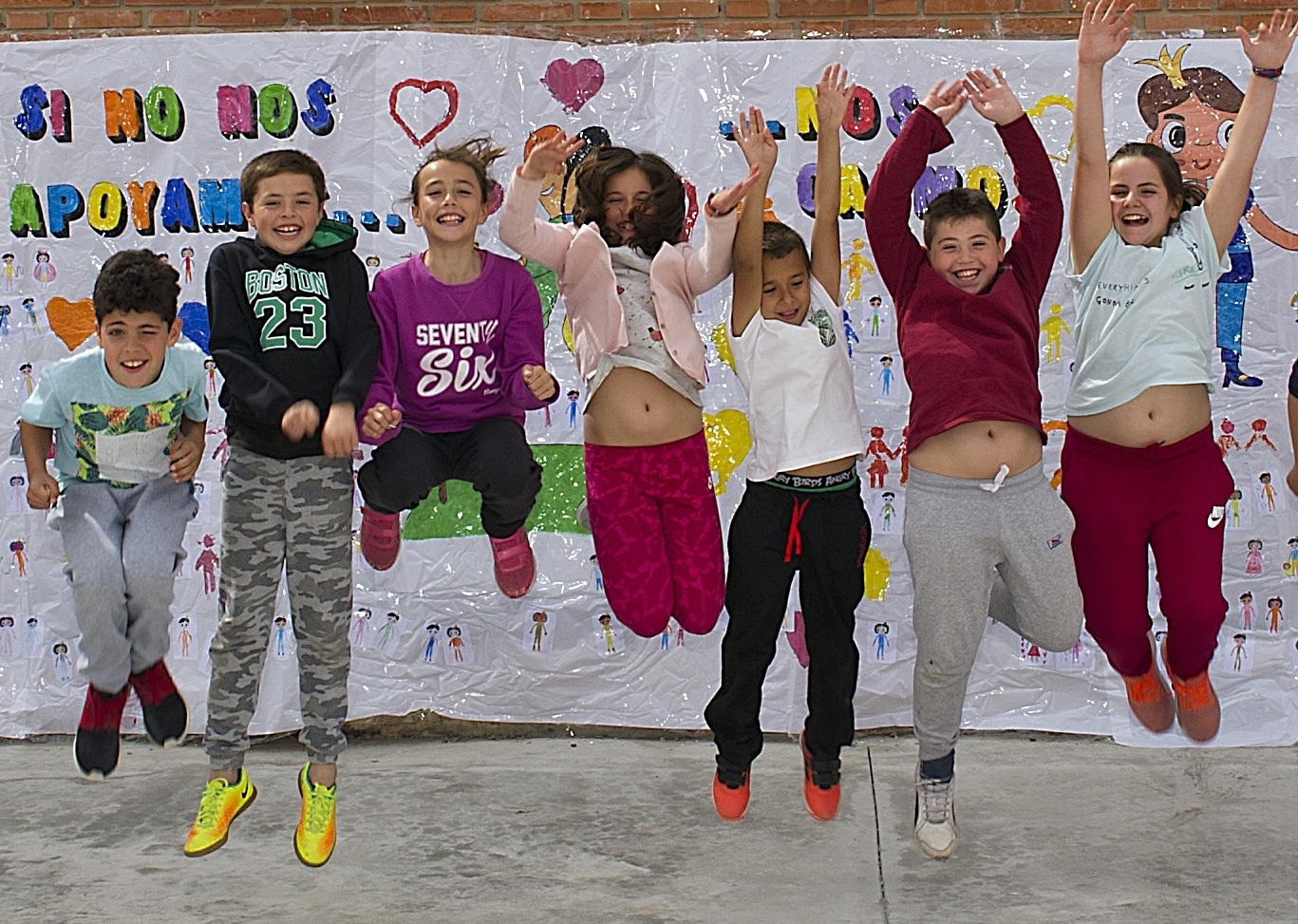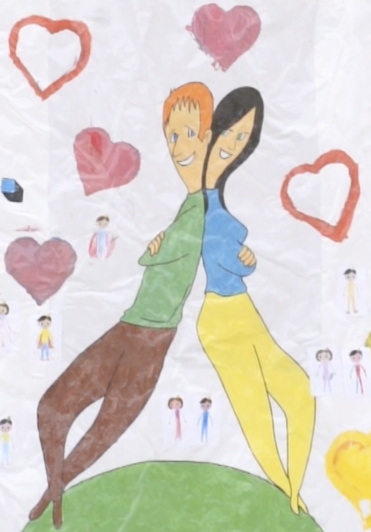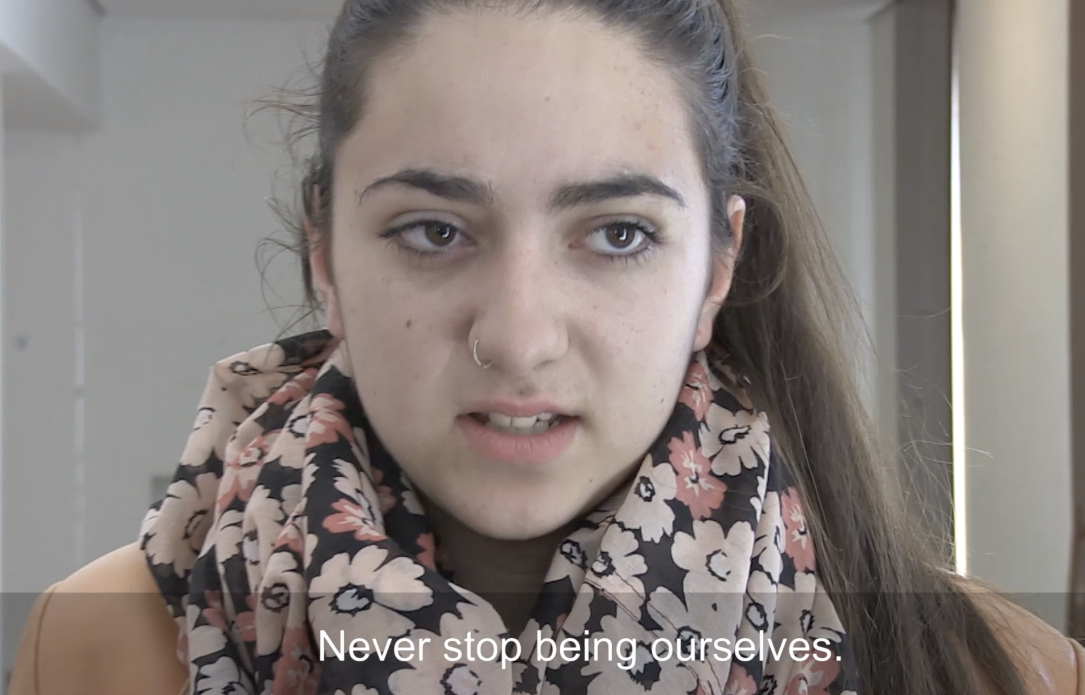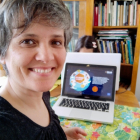Grounding a More Sustainable Europe
News details

Families in the Mojados region of Spain are taking part in the European Commission supported ‘Rural DEAR Agenda’ project. The project, led by Valladolid province partnering with local authorities and CSOs in seven EU countries, is a pilot aiming to boost the local capacity to support awareness raising actions in rural communities across Europe.
Children as young as five have made videos that they showed to parents and the local mayor at a recent event in their civic centre, which kicked-off a discussion of big, global subjects like climate change. They’ve learned what their ‘carbon footprint’ is, and how they can reduce it, and they’ve learned about the importance of reducing food and water wastage at the local, regional and global level.
“If we want the [local authorities] to act and change things, we need to participate and voice our concerns,” says Mariano Luiz Muñoz, a parent and one of the participants in the DEAR Rural Agenda project. “Making small contributions in the place we live is to 'think global and act local' – a good attitude that we try to follow.”
Through the fields – the world in Valladolid
Travelling through the green fields and dispersed settlements along the Douro river, in Castille and Leon region, the challenges of reaching rural European populations is evident. Populations are scattered, making logistics more difficult.
Add to this the fact that most European civil society organisations are located in urban areas, and it's clear why raising awareness for global issues is seen as too difficult to tackle for many rural local authorities.
“Stereotypically, rural populations are usually considered disconnected from the world,” said Maria Carracedo, from University of Valladolid. The project DEAR Rural Agenda was designed by the University with the motivation to study better this apparent disengagement and find ways to address and experiment local solutions for global problems: with a programme of re-granting allowed small municipalities, civil society and schools to tackle actions for global issues that are felt strongly at local level as gender inequalities or migration.
As in many agricultural areas in Europe where local populations are aging, Valladolid receives different waves of younger, migrant workers. Some are seasonal workers, others do more permanent work on different crops.
Such first hand experience of migrant labour provided a starting point for exploring international development issues surrounding migration and refugees, said Martin Rodriguez Rojo, from the Volunteer service of University of Valladolid. “We used familiarity with economic migration to awaken Valladolid's society to what is happening with the refugees in Europe,” said Mr Rojo - and similar findings were observed in the other six partner countries, Bulgaria, Cyprus, Greece Italy, Malta and Poland.
 Together with rural community organisations “[we] designed a co-habitation plan, [involving] social theatre and researching the stories of life of migrants and local people,” said Alexandra Posac Hernandez, “to discover not the differences but what unites us all”.
Together with rural community organisations “[we] designed a co-habitation plan, [involving] social theatre and researching the stories of life of migrants and local people,” said Alexandra Posac Hernandez, “to discover not the differences but what unites us all”.
A strong community: 'Si nos apoyamos, no caimos'
‘If we support each other, we do not fall’ is the key message on the mural at Quintanilla de Onesimo primary school. The painting is the result of children and teachers' engagement in changing gender stereotypes. All the network of schools of the CRA Duero (the Rural Group of Schools of Duero region) participated on this activity supported by Rural DEAR pilot projects.
Laura Rebollo, a 2nd grade teacher, explains how they used games as a strategy to involve children in challenging negative gender stereotypes.
In the classroom, the children are positive about the experience. One student, Álvaro, has taken some of the lessons on board. After watching a film that depicted a man ironing and doing household chores, he now says that he's more likely to do them, too.
"I tidy up my room, make the bed, clear the table .....and then I play!', he said.
Difference and equality was the target of another pilot activity in the pueblo Medina de Rioseco where the village teenagers participated in a gender equality event. Using participatory theatre, the adolescents acted out a violent and abusive household to better understand the dynamics involved and the difficulties the victim might find in breaking out from such a relationship.
 The teenagers Lorena Borjas and Andrea Urrutia are members of one of the local traditional minority groups and have participated very bravely in this gender equality action at the local library. Lorena and Andrea speak with conviction about how the participatory theatre activity was important to them, enabling them to re-think their lives.
The teenagers Lorena Borjas and Andrea Urrutia are members of one of the local traditional minority groups and have participated very bravely in this gender equality action at the local library. Lorena and Andrea speak with conviction about how the participatory theatre activity was important to them, enabling them to re-think their lives.
“Everyone says it’s very easy to leave an abusive situation and be free,” said Andrea, who took part in the event. But she noted that when it came time for her classmates to act out the roles on stage, perceptions change. “The guys who had said it was very easy to deal with, played the part of the mother and then they saw how difficult it was [to leave such situations],” Lorena added.
The starting point for the Rural DEAR Project, was looking at the problems that rural areas face and find ways to involve the local communities in activities that promote a more sustainable way of life, according to Luís Pérez Miguel from Valladolid University. The University recently published the learning from the project in the document DEAR Rural Agenda, which serve as guidelines to support future work.
'May a compromise between municipalities, associations, schools allow such actions to have impact in time and make intentions a reality', said Mr Miguel, looking to the future.
|
DEAR supports raising awareness of global sustainable development issues and recognises that local authorities have an important role to play in acheiving the internationally agreed UN Sustainable Development Goals, 2030. How did this project do that?
|
DISCLAIMER: This article has been written by the DEAR Support Team to provide information about a project that receives European Commission support via the DEAR Programme. The article should not be interpreted as the official view of the Commission, or any other organisation.

Log in with your EU Login account to post or comment on the platform.